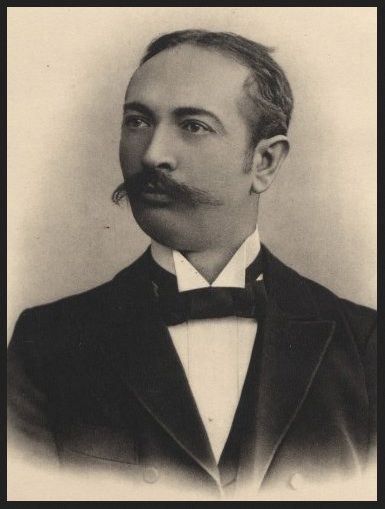Józef Piłsudski in German prisons

Berlin-Spandau, 30th July to 6th August 1917
After their brief stay in Gdansk, Piłsudski and Sosnkowski were individually transferred to Berlin, where their paths now diverged for over a year. They were sent to the prison in Wilhelmstrasse in Spandau near Berlin (now a district included in the capital). The prison was built between 1877 and 1881 and during the First World War around 400 inmates were sentenced here by military courts. After the Second World War the Nazi criminal Rudolf Hess served his sentence here and when he died in 1987 the building was demolished.
The conditions in this prison were considerably worse and the regulations much more rigorous than in Gdansk. It was not allowed to bring in food from the city. In the morning, the prisoners were served thin coffee and a slice of black bread, a lousy soup at noon and the morning menu was repeated in the evening. Germany was experiencing food shortages at the time and the “turnip winter” had only ended a few months earlier. Against this background there was no good reason to supply the Polish prisoners with special food despite their high rank. They were also forbidden to read books and daily newspapers, which was a sensitive issue given their monotonous existence. The lights were switched off at 7.30 in the evening (to save energy!), and they were woken at 5.00 in the morning. The hygienic conditions were catastrophic and the cells were full of bugs. Fortunately, their stay in Spandau was short.
Recalling Piłsudski many years later, the prison warden Oskar Kempe said:
“He was a distinguished gentleman! He was proud, he spoke little, he never asked for anything, he never complained about anything, he just came to Oskar Kempe's office from time to time for cigarettes: I no longer know who sent them to him.”




![Flyer to protest against the illegal internment of Piłsudski, 1917 Flyer to protest against the illegal internment of Piłsudski, 1917 - Flyer: On Sunday 29th of this month we will gather in front of the Adam Mickiewicz Monument at 11 am to protest against the illegal internment of Commander Józef Piłsudski and Chief of Staff of the First Brigade, Lieutenant Colonel [Kazimierz]. Sosnkowski](/sites/default/files/styles/width_100_tiles/public/assets/images/obywatele-obywatelki-inc-dnia-29-bm-w-niedziele-zbieramy-sie-o-godz-11-rano-na-0_kopie.jpg?itok=hxoxe_Lq)














































